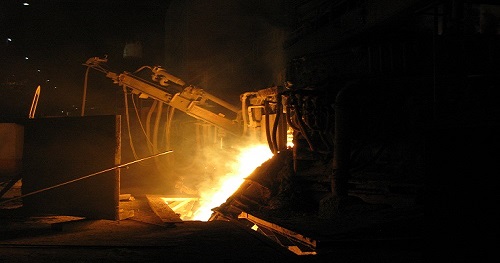SPECIALIST ON THE ELECTRIC ARC FURNACE (EAF)

The Electric Arc Furnace (EAF) is the most flexible chemical reactor to produce steel in terms of raw materials. It can produce high quality steels at high rates. A modern EAF is a reactor that also employs high inputs of chemical energy. The performance of the EAF can be measured in terms of energy consumption, metallic yield, refractory life, melting rate, steel cleanliness, etc. In order to improve the performance of an EAF it is important to understand the effect of metallic charge (amount, particle size and chemical composition), flux additions, electric power parameters, oxygen injection practice, slag foaming practice, etc., and their complex interaction.
Alberto N. Conejo: Professor at the University of Science and Technology Beijing (USTB) in China. Previously Professor at Morelia Technological Institute in México for 30 years. He worked as a consultant for several steel plants in México for more than 20 years. Received several awards including the 2010/2011 National award from the Steel Chambers Association for his work on slag foaming, the 2005 Michoacán state award on Technology for his work on optimization of EAF metallurgical practices and the 2002 Charles W. Briggs award from the Iron and Steel Society in the USA for best research in the Electric Arc Furnace. Since 2017 is member of the editorial board of Metallurgical Research and Technology. He has provided training to the steel industry for more than 1500 men-hours.
Consists of the following:
- This training program will form specialists in the Electric Arc Furnace, capable to design metallurgical practices with consistent and optimum results in terms of energy optimization, metallic yield, productivity and in general higher efficiency.
- After the training program you will have a solid understanding of the fundamental principles and practical aspects of steelmaking in the EAF.
- After the training program you will be able to provide ideas to improve the current operation of the EAF.
The sections include:
- Engineering principles (Thermodynamics and physical chemistry)
- Electric engineering principles and its application in the EAF
- Electrodes
- Mechanical design aspects of the EAF
- EAF refractories
- Raw materials: Metallics (Scrap and DRI), fluxes and ferroalloys.
- Slagmaking and slag foaming
- Decarburization and oxygen injection
- Dephosphorization
- Melting profiles with DRI, scrap and pig iron.
- Tapping and Deoxidation
- CFD principles and applications to the EAF
- Environmental aspects
Every specialization program is designed according with the needs of the participants and the book received is in consequence unique in each group.
Engineers (process engineers, production engineers, quality control engineers, etc.) and management involved in EAF steelmaking, students of metallurgy, lecturers in metallurgy, suppliers of raw materials and equipment
The specialization program can be offered in three places:
- In company: No limits to the number of participants
- Beijing, China. At USTB.
- México City, México.



